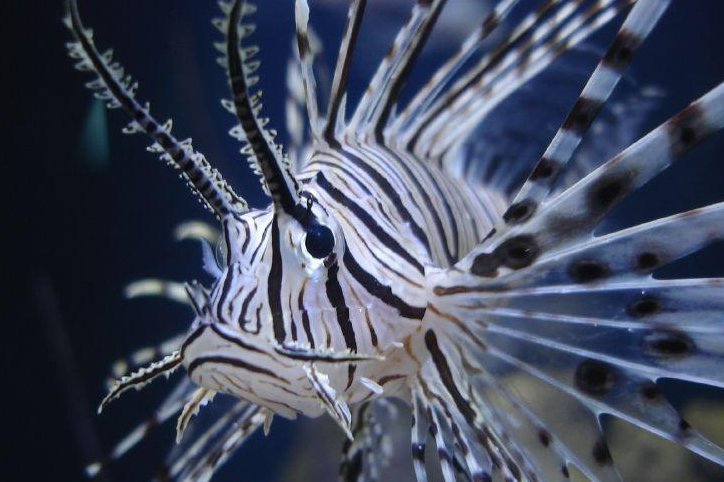(UPI) -- Lionfish are invading the Atlantic Ocean at an increased rate and scientists are worried that consequences could be grave.
A native of the tropical waters of the South Pacific and Indian Oceans, the lionfish is a venomous, fast-reproducing fish that has no known predators. Aggressive eaters that will eat almost anything, lionfish are capable of destroying 90 percent of a reef.















